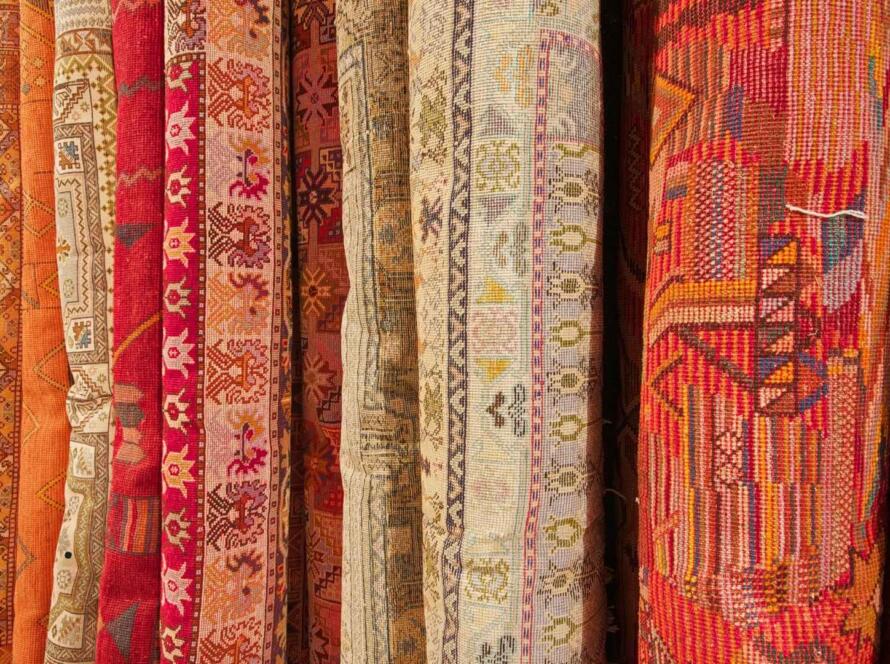Sustainable Rug Production: The Future of Eco-Friendly Rugs
As environmental awareness continues to shape consumer preferences, the demand for sustainable rugs and eco-friendly rugs has extended into the realm of interior design. This evolution reflects a growing commitment to minimizing the ecological footprint of decor while still offering exquisite and functional products. The production of custom sustainable rugs and eco-friendly rugs has seen a significant shift towards incorporating environmentally conscious practices and materials.
Shivalika Rugs exemplifies an enduring commitment to sustainability, woven into every fibre of their philosophy. At Shivalika Rugs Panipat, we curate immersive experiences that honor the modern aesthetic and resonate with the eco-conscious values of our valued clientele. In this article, we explore the eco-friendly materials that are revolutionizing sustainability in rug production.
Natural and Biodegradable Materials in Sustainable Rugs

The use of natural and biodegradable materials in the production of sustainable rugs has gained momentum due to their reduced environmental impact. Organic fibres, such as organic cotton, jute, and hemp, are cultivated without synthetic pesticides or fertilizers, minimizing soil and water contamination. These materials are not only renewable but also biodegradable, ensuring that once their lifecycle is complete, they can naturally decompose without harming the planet.
By incorporating these materials, Shivalika Rugs aims to create custom sustainable rugs that blend modern aesthetics with environmental consciousness, making our products ideal for eco-friendly interior design.
Recycled Materials in Eco-Friendly Rugs

Recycled materials are another cornerstone of sustainable rug production. At The Shivalika Rugs, we embrace the repurposing of materials like discarded plastic bottles, denim, and wool scraps into sustainable rug fibres. This approach not only diverts waste from landfills but also reduces the need for virgin resources, ultimately leading to a significant reduction in our environmental impact.
The innovative process of transforming waste into eco-friendly rugs showcases the potential of recycling to create valuable, sustainable products. Whether you are seeking a custom sustainable rug or an eco-friendly solution for your home, Shivalika Rugs has a range of options crafted with recycled materials to suit your needs.
Natural Dyes for Sustainable Rug Production
The use of natural dyes is pivotal in the creation of eco-friendly rugs. By eliminating the harmful chemicals associated with traditional synthetic dyes, natural dyes derived from plant sources not only reduce pollution but also contribute to the authentic look and vibrant color of Shivalika Rugs. Our commitment to natural dyeing processes helps preserve cultural practices while aligning with the principles of sustainability and creating exquisite, eco-friendly rugs for modern homes.
Sustainability as a Social Responsibility
The incorporation of sustainable materials into sustainable rug production goes beyond environmental well-being; it also fosters social responsibility. Many sustainable rug companies, including Shivalika Rugs, prioritize fair labor practices, ensuring that artisans and workers involved in the production process are treated ethically and compensated fairly.
This approach creates a positive cycle where conscious consumer choices lead to better working conditions for those contributing to the creation of sustainable rugs. Our dedication to these values is what makes Shivalika Rugs a preferred choice for those seeking eco-friendly rugs that not only respect the planet but also uplift the communities involved.
Shivalika Rugs: Leading the Way in Sustainable Rug Production
The exploration of sustainable materials in rug production underscores our commitment to eco-friendly practices. As the demand for sustainable interior design solutions grows, Shivalika Rugs continues to evolve, providing custom sustainable rugs that align with a more environmentally conscious future. Our products, crafted in Shivalika Rugs Panipat, honor both aesthetic appeal and sustainability, creating a unique blend of style and eco-conscious values.
Whether you’re looking for sustainable rugs, eco-friendly rugs, or want to explore custom sustainable rug options, Shivalika is here to help transform your space with designs that are not only beautiful but also kind to the planet.




